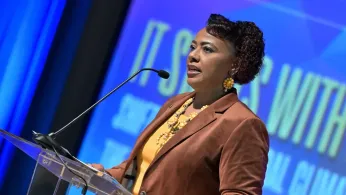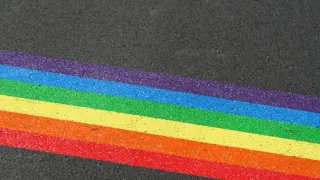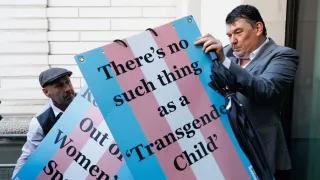
4 hours ago
Bernice King Condemns Deepfakes of MLK as OpenAI Bans Use of Civil Rights Icon’s Likeness
READ TIME: 4 MIN.
The rapid advancement of artificial intelligence has fueled a wave of creative content online, but not all innovation is met with applause. This week, Bernice King, daughter of the late civil rights leader Dr. Martin Luther King Jr., voiced strong opposition to the proliferation of AI-generated videos and images—known as deepfakes—that use her father’s likeness for entertainment, memes, and social media virality without consent. Her protest comes amid widespread sharing of such content across platforms like TikTok and Instagram, where users employ OpenAI’s Sora 2 video generator to reanimate historical figures in scenarios ranging from the absurd to the trivial .
Bernice King, who was just five years old when her father was assassinated in 1968, described these digital recreations as “dishonoring, deplorable, and disrespectful,” contending that such content trivializes the legacy of her father and the broader struggle for civil rights . The backlash is not isolated to the King family; other public figures and their loved ones, including Zelda Williams (daughter of comedian Robin Williams), SZA, Drake, Kendrick Lamar, and Rihanna, have also publicly condemned the unauthorized use of AI to mimic their voices and images for profit and entertainment .
The controversy centers on OpenAI’s Sora 2, an app renowned for its ability to generate lifelike videos from text prompts within minutes. This technology has made it easier than ever for anyone to create and share deepfakes—videos that can insert the faces and voices of real people, living or dead, into fictional or manipulated scenes . Recent examples circulating online have depicted Martin Luther King Jr. in outlandish scenarios, such as giving his iconic “I Have a Dream” speech with commercial slogans or participating in comedic sketches that distort his message and legacy .
Many of these creations, initially seen as novelty content, have now been widely criticized as exploitative, with Bernice King describing them as “foolishness” rather than free speech. “For me, many of the AI depictions never rose to the level of free speech. They were foolishness,” King wrote in a post on X (formerly Twitter) . She thanked those who expressed concern about the “demeaning, disjointed use” of her father’s image and called for greater respect for the dignity of those represented .
In direct response to Bernice King’s advocacy and extended dialogue between OpenAI, the King Estate, and the AI Ethics Council, OpenAI announced a significant change in its policy on October 16, 2025. The company stated it would now allow estate owners or authorized representatives of public figures to request the removal of their likenesses from Sora, and block users from generating new deepfakes of those figures without explicit consent .
“While there are strong free speech interests in depicting historical figures, OpenAI believes public figures and their families should ultimately have control over how their likeness is used. Authorized representatives or estate owners can request that their likeness not be used in Sora cameos,” the company wrote in its joint statement with the King Estate .
Despite the policy shift, questions remain about how OpenAI will define a public or historical figure, and how requests will be processed, raising concerns about the broader ethical framework guiding AI content moderation .
The debate over AI-generated deepfakes touches on critical issues of consent, legacy, and the right to control one’s image after death. For marginalized communities—including Black Americans and LGBTQ+ people who have historically faced misrepresentation and exploitation in media—the rise of deepfakes poses unique risks. The unauthorized use of prominent figures such as Martin Luther King Jr. in AI-generated content not only distorts the message of social justice advocates but can also contribute to the spread of harmful stereotypes and misinformation .
LGBTQ+ individuals and organizations have also expressed concern about the potential for deepfake technologies to be weaponized against their communities. In recent years, activists have highlighted the dangers that manipulated media pose to transgender people, drag performers, and other LGBTQ+ figures, who may be targeted with fabricated videos designed to harass, misinform, or defame .
Bernice King’s advocacy aligns with broader calls for accountability and consent in digital media. By pushing OpenAI to give families and estates control over the use of historical figures’ likenesses, she is helping to set new standards for ethical AI development—standards that recognize the dignity and autonomy of those represented, living and deceased.
The controversy surrounding MLK deepfakes is emblematic of a larger struggle to balance innovation and respect in the digital age. As AI technologies become ever more powerful, questions about consent, legacy, and cultural sensitivity grow increasingly urgent. Bernice King’s leadership—alongside other voices from civil rights and creative communities—demonstrates how advocacy can drive meaningful change at the intersection of technology and society.
OpenAI’s new policy marks a significant step in addressing the concerns of families and estates, but the company and the tech industry at large must continue to grapple with the ethical challenges posed by deepfake technology. Ensuring that all individuals, including those from marginalized groups such as LGBTQ+ communities, are protected from exploitation and misrepresentation remains a critical priority.
As Bernice King put it, the fight is not just about protecting her father’s image—it is about honoring the dignity and humanity of every person, and ensuring that technological progress serves the cause of justice rather than undermining it.






